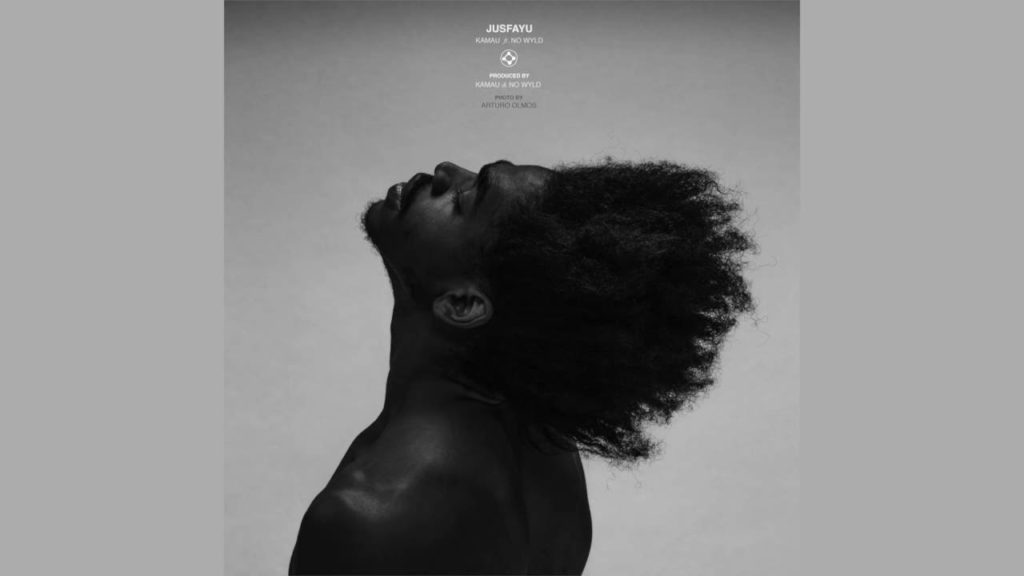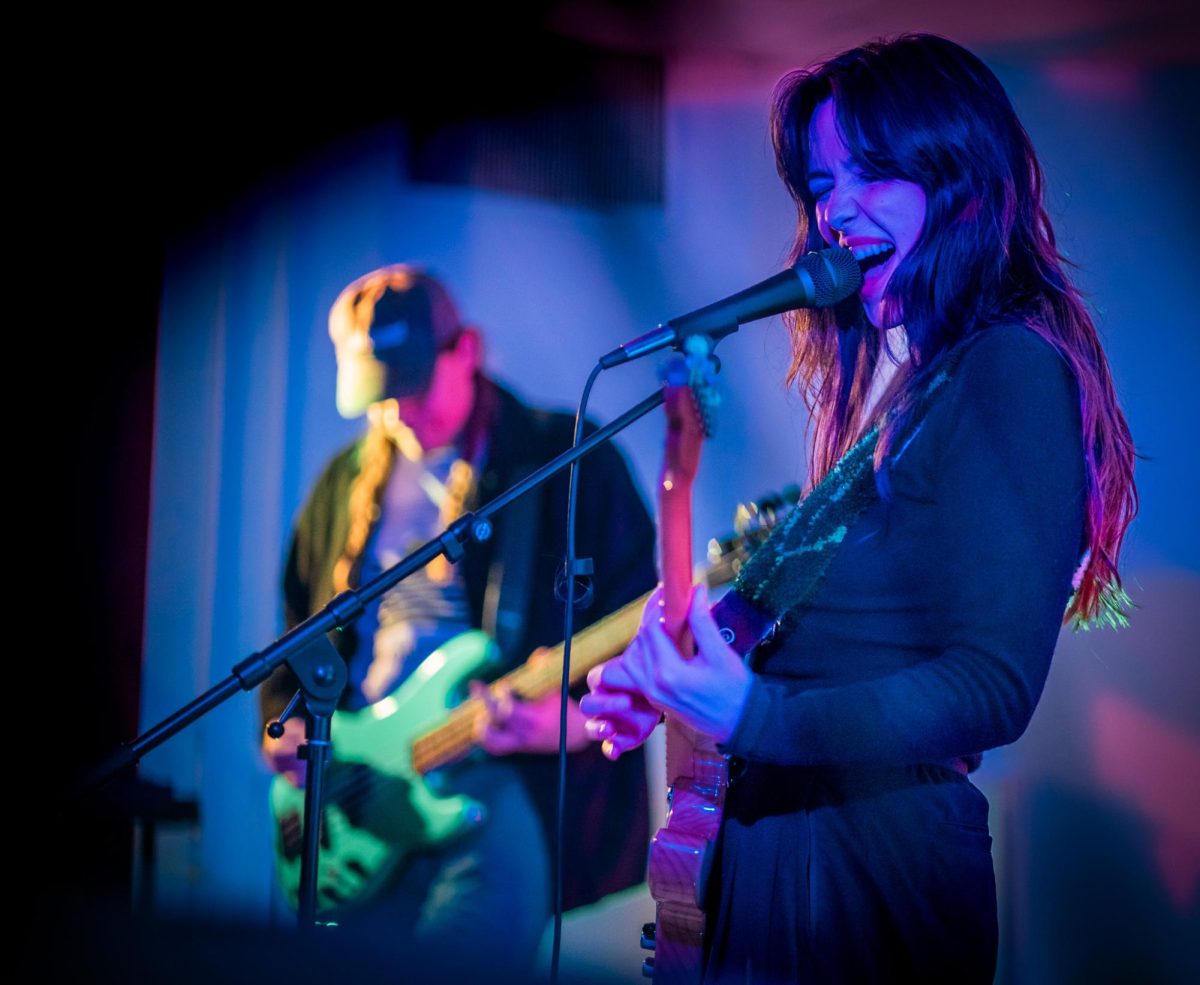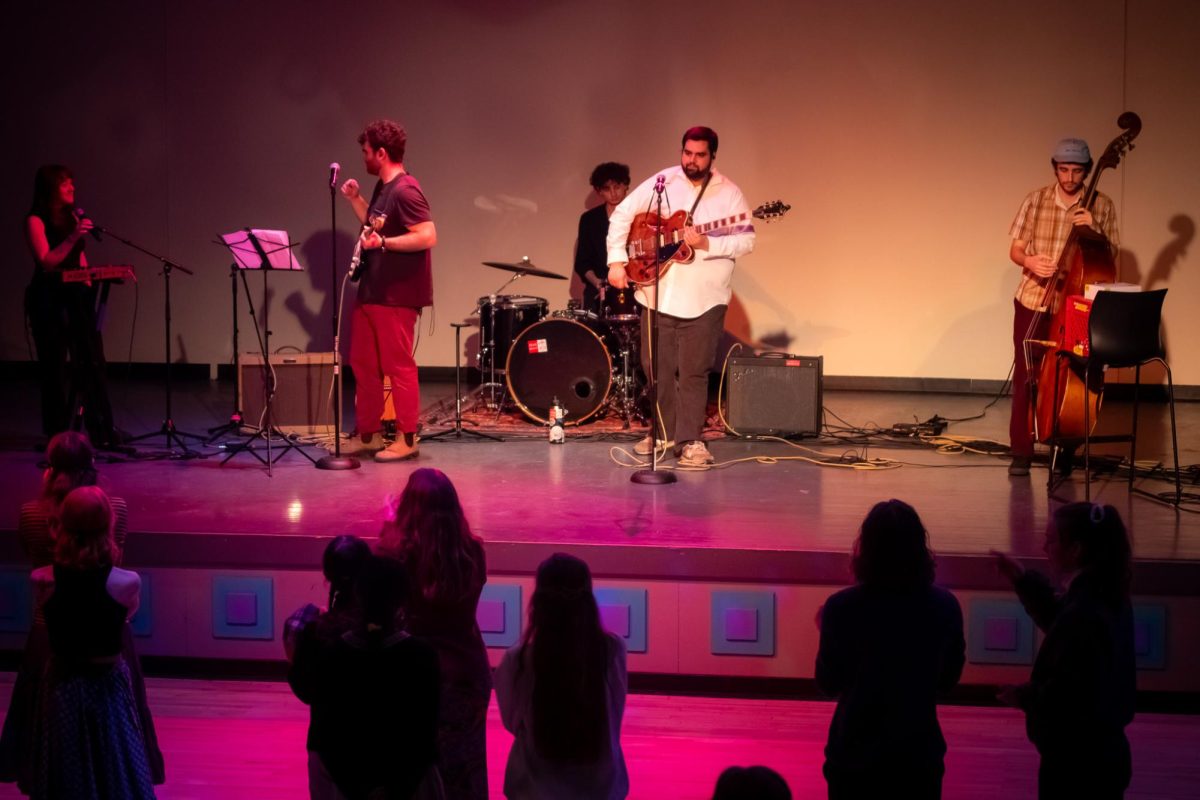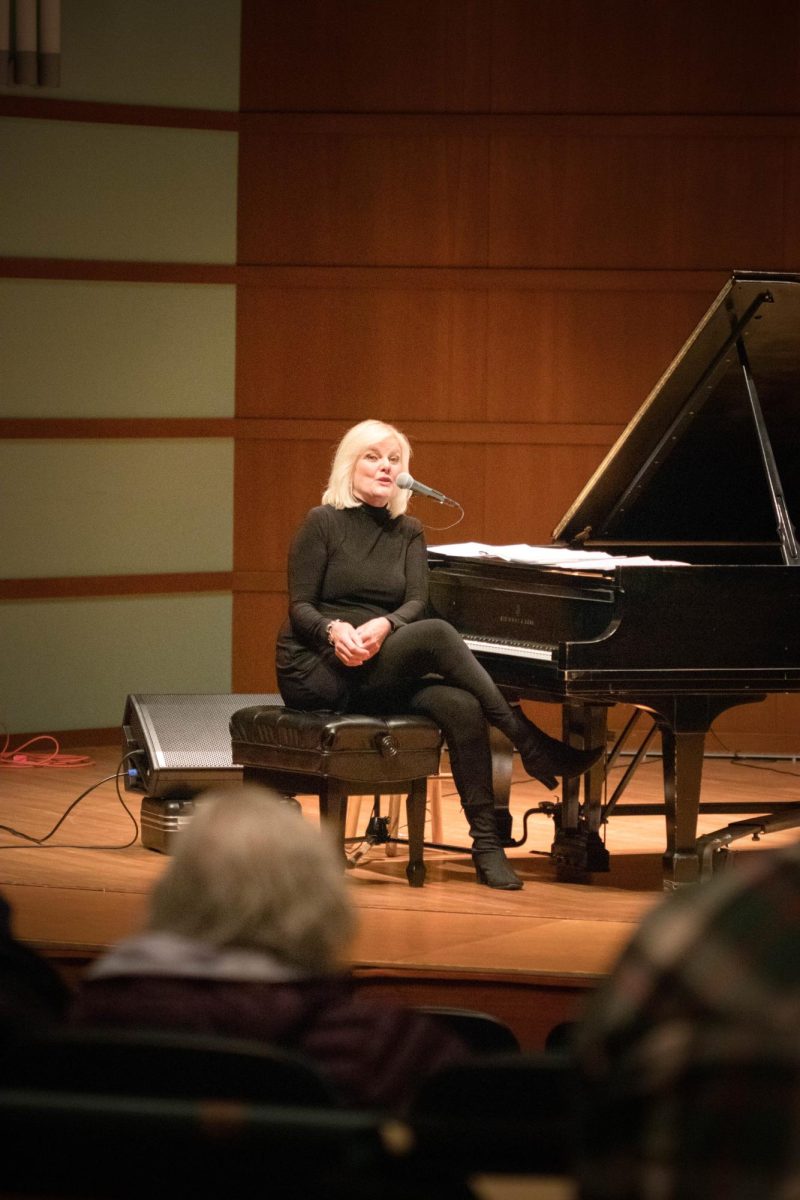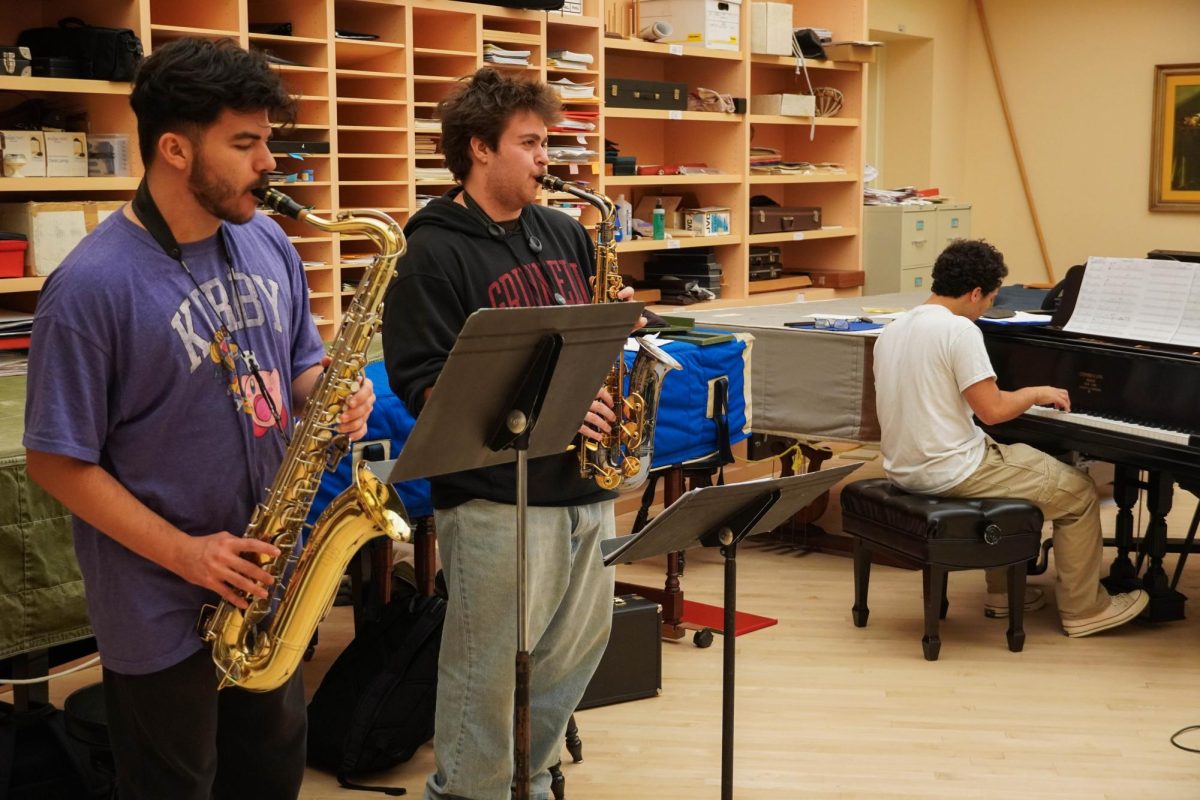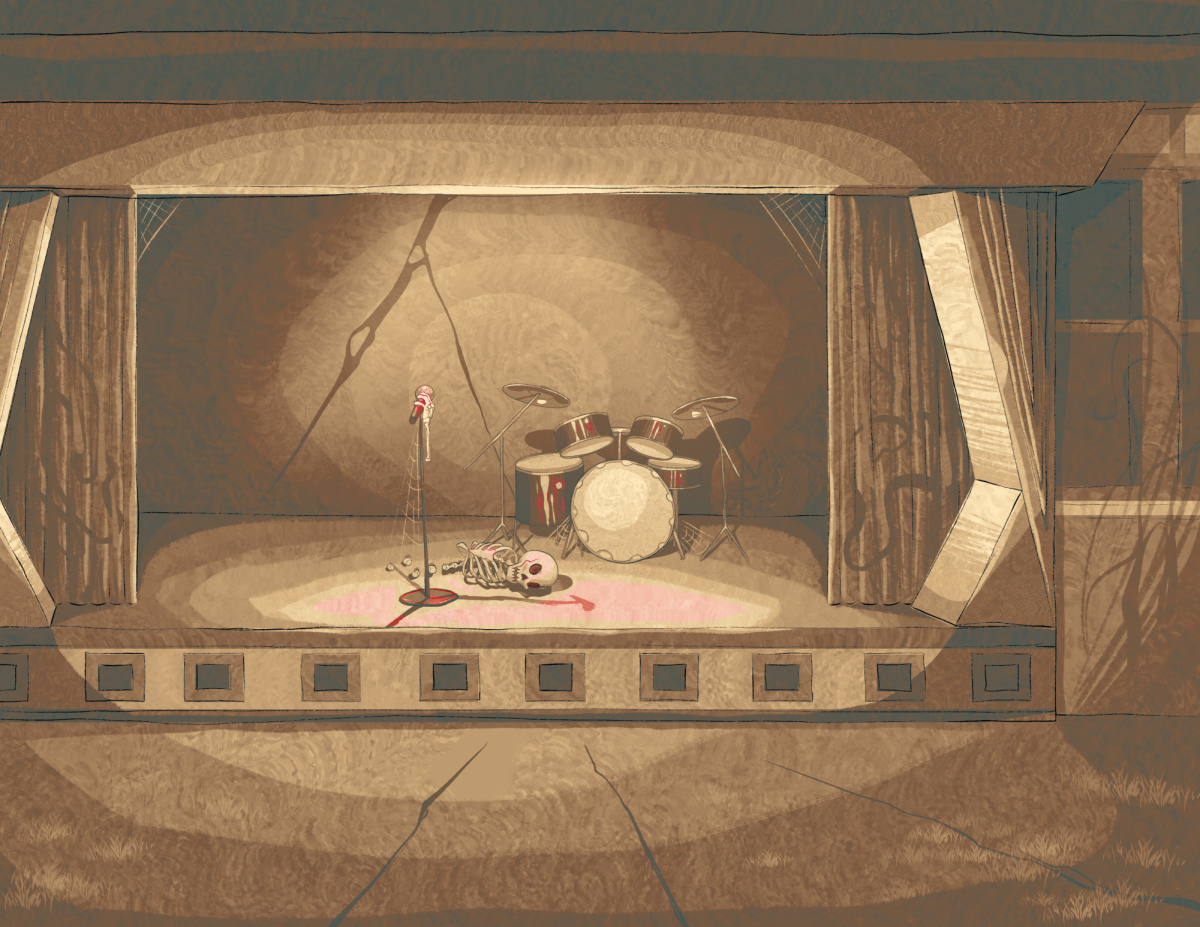By Emma Heikkinen
heikkine@grinnell.edu
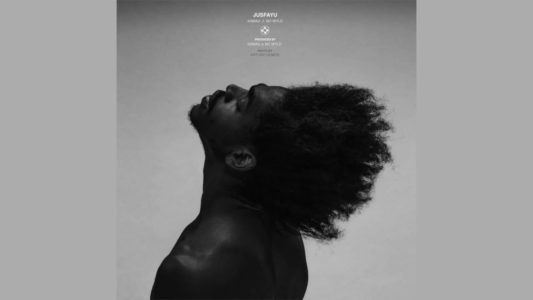
Photo contributed
Distinctly different rappers KAMAU and Lucien Parker will be performing in Gardner Lounge tonight, Friday, Sep. 1, with Djay Mando, in Grinnell Concerts’ second show of the semester.
KAMAU is a singer-songwriter hip-hop and rap artist from Washington D.C., now residing in Brooklyn, where he recently performed at the Afropunk Festival. On his website, KAMAU states his desire to “consciously contribute something as great and beautiful as our existence to the world and ‘to do always as much as we can, in the way we can, in order to leave our community [and world] more beautiful and beneficial than we inherited it.’”
KAMAU identifies the importance of balance, culture and family. He was raised in an indigenous and Black environment with a great appreciation for sound of all forms — in nature, among many cultures and of the past and present. As a film graduate of Pratt Institute, KAMAU’s music videos are story-heavy and expressive.
KAMAU’s music is an abstract yet cohesive mix, featuring influences such as African instrumentals from his time at the Ujamaa Schule, a self-described “independent Afrikan private school” in D.C., Miles Davis, Louis Armstrong, Andre 3000, Tupac Shakur, Mystic Warriors, Vieux Diop, Lauryn Hill and Sade.
His single “Jusfayu” ft. No Wyld from “A Gorgeous Fortune” EP — featured on soccer videogame FIFA 17 — is an energetic soundscape of layered vocalizations, jazz influence and emotion. Another recent single, “Mint” ft. Talibah Safiya, is more muted, with heavier R&B overtones in an intimate melody. The charged song “PohLease” from “A Gorgeous Fortune” opens with the march of military boots against pavement. On this track, KAMAU sings of the continued legacy of racist police brutality — and of anti-Black violence in general — in America, from Emmett Till to Michael Brown.
Lucien Parker is a singer-songwriter and rapper from South Minneapolis. He began in the spoken-word and poetry world of Minneapolis, travelling to Brave New Voices and earning the hip-hop and spoken-word First Wave Program scholarship at The University of Wisconsin Madison. In 2016, he released his debut LP “Black Sheep,” an expression of self-knowledge, peace and being an outsider. Speaking from a South Minneapolitan Black middle-class family background, Parker relates deeply to the concept of being a “black sheep.” On his website, he describes his experiences as making him “aware of the stereotypes imposed on African American people as portrayed by the media today.”
Parker, on his website, describes his belief that artistry can help dismantle systems of oppression.
“Music is a tool that can be used to change the world. It can be used as a platform to help eradicate a system that is hell bent on trapping people of color. I may only be a piece of the puzzle, but I will continue to make music that will continue to uplift my children, and their children after them transcending the boundaries of time and place.”
His 2017 single “Impossible” concerns individuality and self-becoming in a difficult environment, at one point rapping; “Made a peace wit it / I originated from the impossible / That’s a rocky road.” The song invokes a sense of hope and community. “Good Side” from “Black Sheep” describes the intimacy of a relationship over a syrupy, slower beat, showing another facet of Parker’s musical expression. “After Recess” describes the role of rap in Parker’s life: a link to community, a savior from college debt and a way to support his family.
This Friday, audiences can expect an energetic show, and will leave Gardner with a greater understanding of community and individuality.




























































